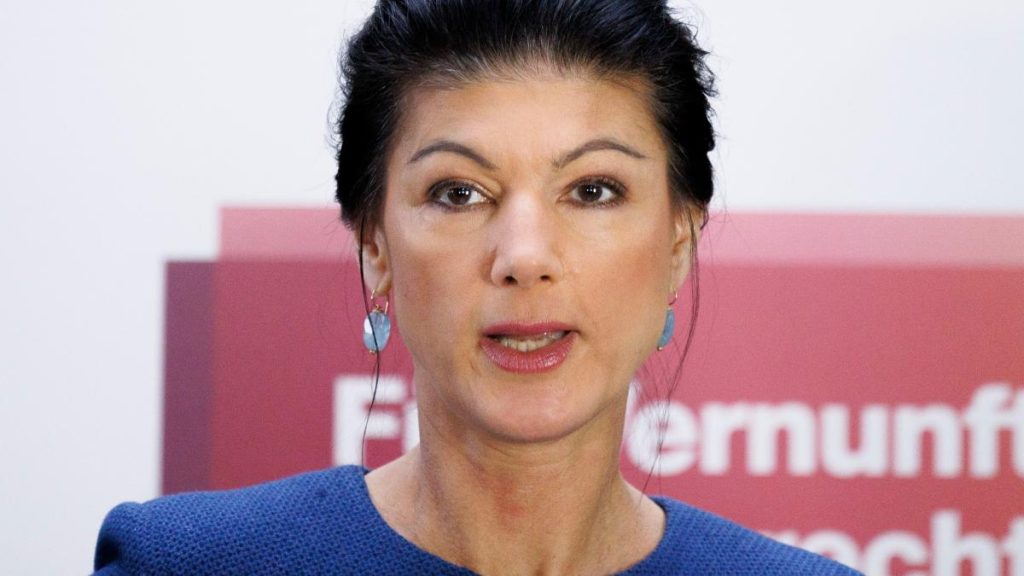The Israeli military has begun evacuating Palestinian civilians from the town of Rafah in the Gaza Strip, with residents being directed to move to tent cities in the northern area of Al-Mawasi. Sahra Wagenknecht, founder of the BSW party, criticized this evacuation as a preparation for further war crimes by the Netanyahu government and accused the German government of complicity in these actions by not imposing an arms export ban on Israel. Wagenknecht called for diplomatic and economic pressure on Israel, stating that the current situation in Gaza no longer resembles legitimate self-defense but rather a bloody campaign of revenge with no end in sight.
Efforts by the German government to mediate a ceasefire between the Israeli government and the Hamas terror organization have been ongoing for weeks, with the goal of achieving a truce in the Gaza Strip and securing the release of hostages held by Hamas. However, a potential deal has not materialized, and Israel’s evacuation order for Rafah is seen as a precursor to an expected military strike. Wagenknecht’s criticism of Israel’s actions reflects growing international concern over the high number of civilian casualties and the dire humanitarian situation in Gaza, which has garnered widespread condemnation.
The trigger for the Gaza war was a horrific massacre on October 7th, where over 1200 people were killed by Hamas terrorists and other groups in Israel. In response, Israel launched extensive airstrikes and a ground offensive, leading to further civilian casualties and worsening conditions in Gaza. These actions have prompted strong criticism of Israel on the international stage, with calls for accountability and efforts to address the humanitarian crisis in the region. The ongoing conflict and the lack of a peaceful resolution have underscored the urgent need for diplomatic intervention and a cessation of hostilities to prevent further loss of life and suffering in Gaza.
The statement by Sahra Wagenknecht regarding Israel’s evacuation of Rafah as a potential prelude to war crimes has reignited debates about Germany’s role in the conflict and the need for greater accountability in arms exports. The criticism of Israel’s actions highlights the complex political dynamics at play in the Middle East and the challenges facing policymakers in addressing the ongoing violence and instability in the region. As calls for peace and humanitarian assistance continue to mount, the urgency of finding a sustainable solution to the Gaza crisis becomes increasingly apparent, with international pressure mounting on all parties involved to prioritize dialogue and de-escalation to prevent further bloodshed and human suffering.
As tensions escalate in the Gaza Strip and concerns grow over the potential for further violence, the role of external actors, including Germany, in mediating a peaceful resolution to the conflict becomes increasingly crucial. The failure to reach a ceasefire agreement and the continued suffering of civilians in Gaza underscore the pressing need for international cooperation and diplomatic efforts to address the root causes of the conflict and prevent further humanitarian crises. With the situation in Gaza continuing to deteriorate, the need for a comprehensive and inclusive approach to resolving the crisis becomes more urgent, with a focus on upholding human rights, promoting dialogue, and working towards a sustainable peace that benefits all parties involved in the region.















